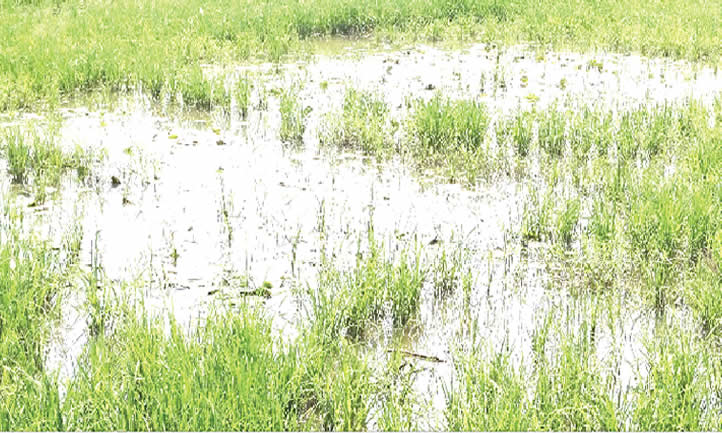Hundreds of rice farmers across Yauri, Ngaski, and Shanga Local Government Areas of Kebbi State are facing severe hardship after the River Niger overflowed its banks, submerging thousands of hectares of farmland and destroying crops worth millions of naira.
The disaster, which followed days of heavy rainfall, has dashed the hopes of farmers who had invested heavily in preparation for the upcoming harvest. Vast rice fields that were expected to yield bumper produce under Kebbi’s famed Lake Rice initiative now lie underwater.
Speaking with journalists on Wednesday, one of the affected farmers, Malam Usman Dankwairo, described the flooding as “unprecedented and heartbreaking.”
“The water from the River Niger first took over our farms, and then the heavy rains swept everything away. God has brought this trial upon us, but the truth is that we have lost everything. Farmers in Shanga, Yauri, and Ngaski may never recover without urgent help,” he lamented.
Dankwairo, who revealed that some farmers previously harvested over 100 bags of rice, said most of them had invested their life savings in this year’s planting season. He urged political leaders to move beyond sympathy visits and provide immediate and tangible assistance.
“This is not about coming here to console us; we need real support. Many of us have nothing to fall back on. Governor, your people are crying for help,” he pleaded.
Community leaders in the affected areas echoed the call, urging the State Emergency Management Agency (SEMA), federal authorities, and humanitarian organisations to intervene with relief materials, rehabilitation support, and a recovery plan to save livelihoods.
They warned that if the situation is not quickly addressed, the flood could trigger widespread hunger and economic hardship in Kebbi and beyond, given the strategic role the state plays in Nigeria’s rice production.
Meanwhile, local officials confirmed that assessments of the damage are ongoing to determine the scale of government response required.
With farmlands submerged and families displaced, the flood poses one of the toughest challenges to Kebbi’s farmers in recent years, threatening food security and plunging hundreds of households into uncertainty.





